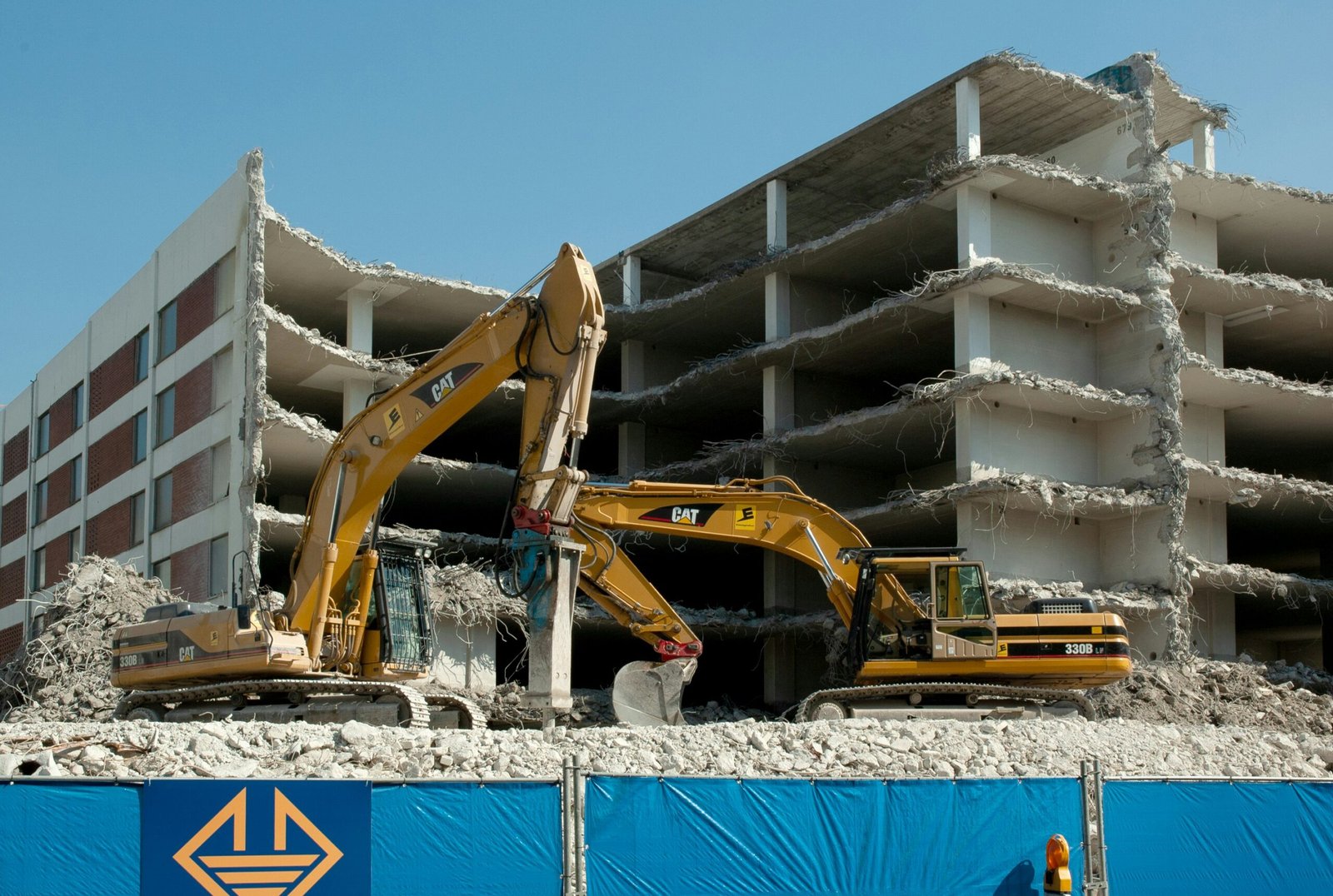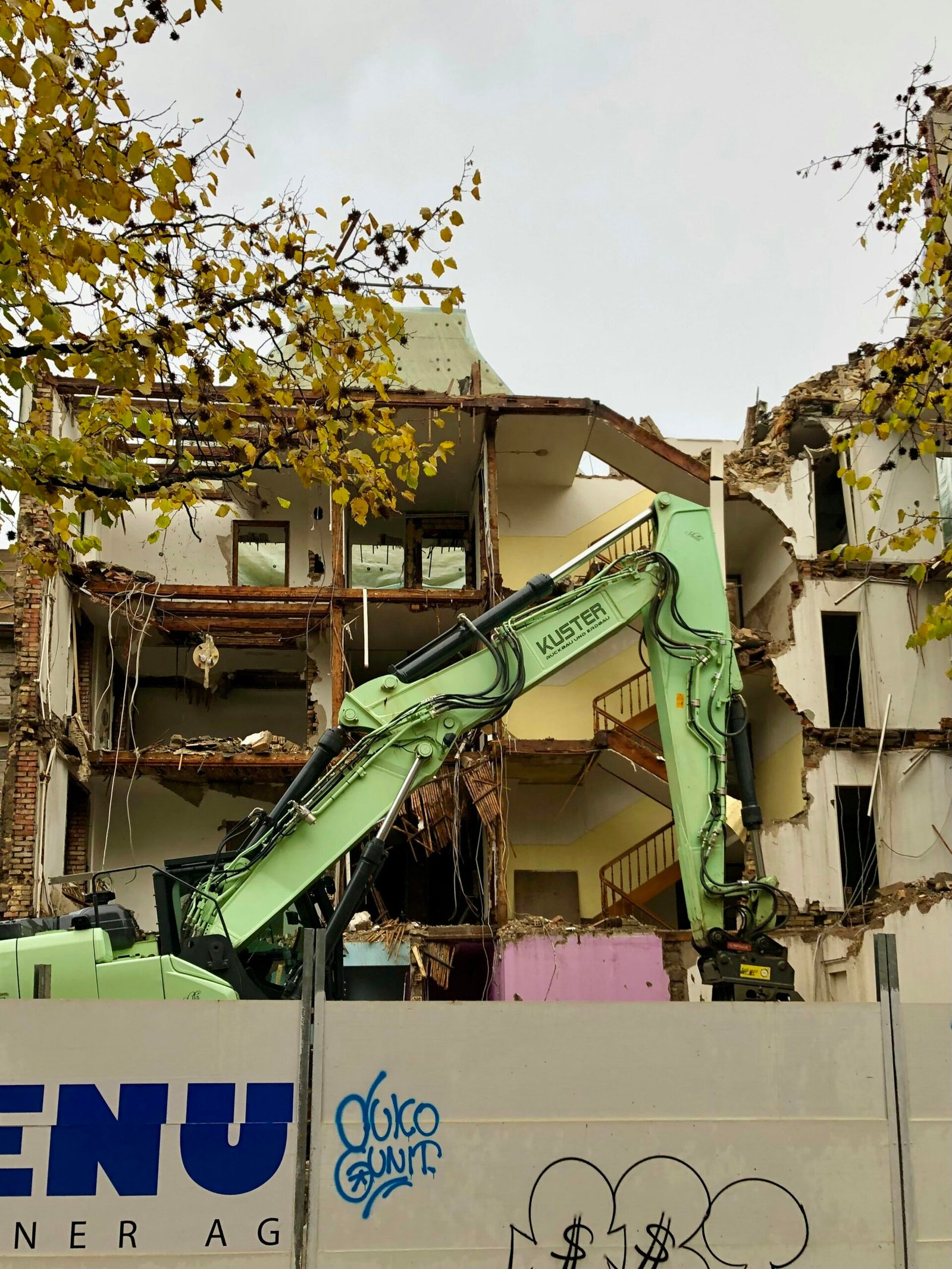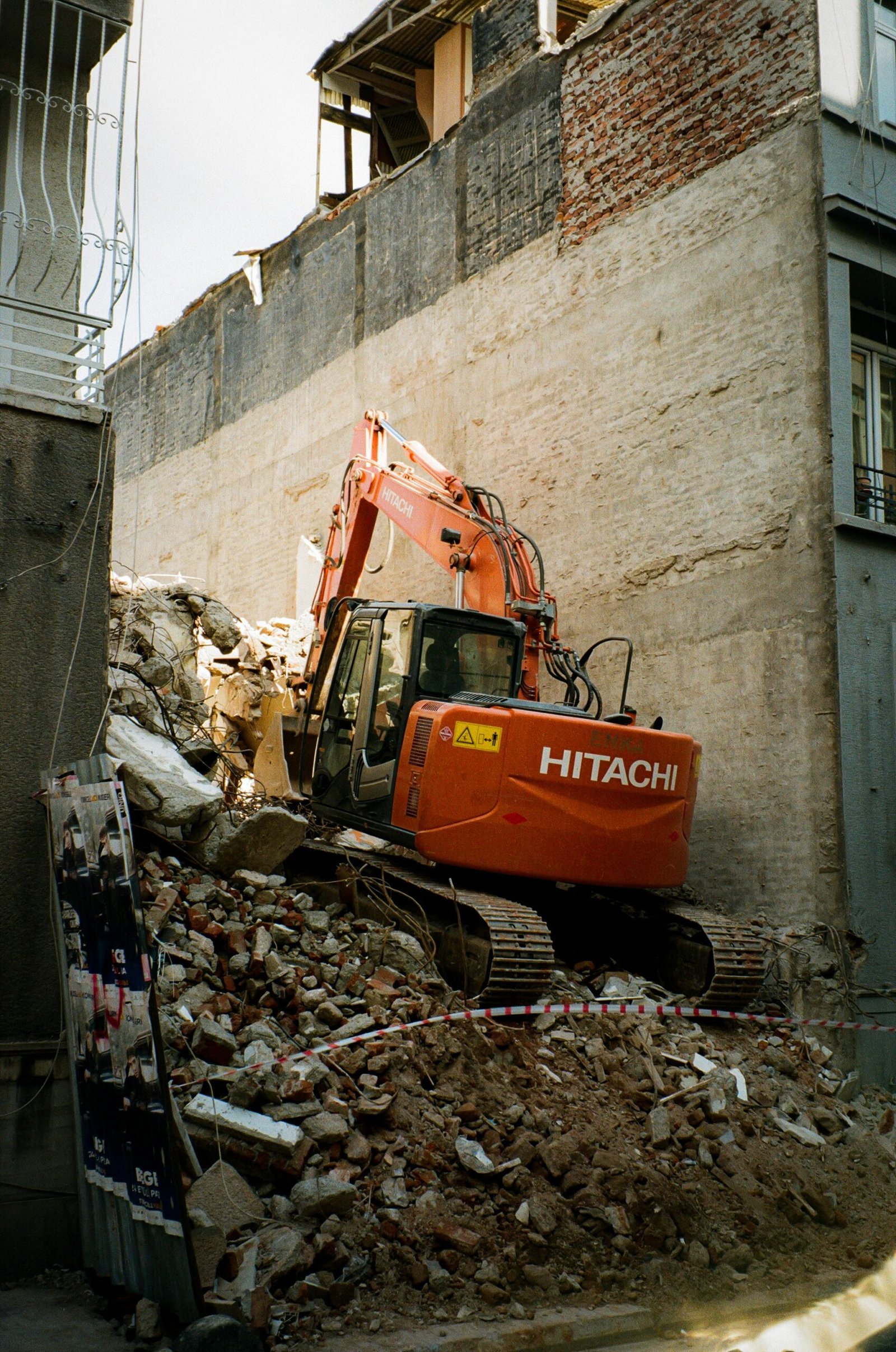Introduction to AI in Demolition
The demolition industry has long relied on traditional methods for planning and executing projects, which often involve meticulous assessments and manual oversight of safety measures. These conventional approaches present numerous challenges, ranging from inefficiencies in data management to the potential for human error when assessing structural integrity. As projects grow in complexity, the need for more sophisticated methods becomes apparent. Consequently, the incorporation of artificial intelligence (AI) technology into demolition planning is emerging as a transformative solution.
AI offers several advantages over traditional approaches, notably in the realm of data analysis and predictive modeling. By leveraging vast amounts of data from previous projects, AI systems can identify patterns and trends that may not be immediately evident to human planners. This insight allows for optimized decision-making and improved accuracy in risk assessments, significantly enhancing safety protocols. Moreover, AI can simulate various demolition scenarios, providing stakeholders with a clearer understanding of potential outcomes and facilitating better contingency planning.
Automation is another area where AI can have a profound impact, helping to streamline safety measures throughout the demolition process. For instance, AI-driven systems can monitor real-time conditions on-site, alerting teams to any hazards or deviations from established safety protocols. This instantaneous feedback loop can foster a culture of vigilance, further reducing the likelihood of accidents and ensuring compliance with regulatory standards.
The increasing integration of technology across construction industries underscores a broader trend toward innovation in project management. As the industry embraces advanced solutions, the potential of AI in demolition planning offers a glimpse of a more efficient, safer, and data-driven future. Emphasizing these technological advancements will be crucial for professionals aiming to stay competitive in an evolving landscape.
AI-Powered Tools and Technologies for Demolition Planning
The integration of artificial intelligence (AI) into demolition planning is transforming traditional methodologies, enhancing efficiency, and improving safety. Various AI-powered tools and technologies are now available that specifically address the complexities of demolition projects, enabling stakeholders to optimize their strategies. One such tool is predictive analytics software, which utilizes machine learning algorithms to analyze historical data and assess potential risks associated with demolition activities. By forecasting hazards such as structural weaknesses or environmental concerns, these tools allow for proactive measures to be implemented, substantially enhancing site safety.
Another key component of AI in demolition planning is project management applications that leverage data analytics to create optimized schedules. These applications can simulate different demolition scenarios, taking into consideration factors such as resource availability, site constraints, and external variables. For instance, companies like XYZ Demolition have adopted AI-driven scheduling tools that help plan the sequencing of demolition activities, resulting in a 20% reduction in project timelines and associated costs. These optimizations enable firms to allocate resources more efficiently, thus minimizing downtime and improving overall profitability.
Moreover, AI technologies can enhance communication and collaboration among teams through shared platforms that centralize data and information. Cloud-based solutions allow for real-time updates and access to vital project data, fostering informed decision-making among all stakeholders. As an illustration, ABC Construction deployed this type of AI-enhanced platform to streamline their operations, which led not only to improved project coordination but also to a significant increase in on-site safety compliance. Such success stories underline the powerful impact that AI can have on the demolition industry, revolutionizing how projects are planned and executed.
Enhancing Safety Protocols Through AI
Artificial Intelligence (AI) has emerged as a transformative force in demolition planning, particularly in enhancing safety protocols. One of the most significant capabilities of AI is predictive safety analytics, which involves analyzing data from past demolition projects to forecast potential hazards. By scrutinizing historical data, AI can identify patterns and trends that may lead to dangerous situations, thus aiding project managers in implementing preventive measures before work commences.
Real-time monitoring is another critical aspect of safety enhancement facilitated by AI technology. Through advanced sensors and cameras, AI can continuously analyze a demolition site, detecting risks such as structural instability or the presence of hazardous materials. With this information, management can swiftly respond to emerging threats, thereby ensuring a safer working environment for all personnel involved. This capability not only reduces the probability of accidents but also reinforces a culture of safety within the organization.
Moreover, AI-driven automation in risk assessments streamlines the safety evaluation process. Traditional methods often require considerable manual labor and time, but AI technologies can quickly analyze numerous variables, generating comprehensive risk reports almost instantaneously. This efficiency allows teams to focus on mitigating identified dangers rather than being bogged down in assessment procedures.
Robotic machinery controlled by AI also plays a crucial role in minimizing human exposure to dangers during demolition. By employing robots to handle precarious tasks, such as debris removal or the precise use of heavy equipment, companies can significantly reduce the risk of accidents. For instance, the utilization of drones for site surveying provides a bird’s-eye view, helping safety officers to detect issues while maintaining a safe distance from potential hazards. Additionally, AI-based training simulations for workers prepare them for various scenarios without the risks inherent in real-world situations, ensuring they are well-equipped to handle their duties safely.
The Future of AI in Demolition: Opportunities and Challenges
The integration of artificial intelligence (AI) technologies in the demolition sector is paving the way for significant advancements in planning and safety procedures. As this industry continues to evolve, it is essential to explore both the opportunities and challenges that AI brings. One major opportunity lies in the enhancement of safety protocols through predictive analytics. By utilizing AI algorithms, companies can analyze historical data to anticipate potential hazards, thereby creating safer demolition environments.
Additionally, automation in project management is a key area where AI can revolutionize demolition practices. AI-driven tools can streamline workflows, optimize resource allocation, and reduce delays, ultimately increasing efficiency and lowering costs. Moreover, Machine Learning (ML) can assist in identifying patterns and anomalies in project execution, enabling quick decision-making and adjustments as needed. Such innovations not only improve operational efficacy but also contribute to sustainability by minimizing waste and resource depletion.
However, the adoption of AI in the demolition industry is not without its challenges. A critical concern is the demand for skilled workers who can effectively operate and maintain these advanced systems. The reliance on specialized talent can create a workforce gap, making it necessary for stakeholders to invest in training and education initiatives. Furthermore, data privacy issues pose a significant risk when dealing with sensitive information related to demolition projects. Ensuring the protection of proprietary data will require stringent policies and technological safeguards.
Integrating AI into existing systems presents another hurdle. Companies must navigate the complexities of upgrading their current infrastructure while maintaining ongoing operations. This often entails substantial financial investments and a cultural shift within organizations. Nevertheless, embracing these innovations is crucial for future success. Stakeholders in the demolition industry are encouraged to adopt AI technologies strategically, developing comprehensive risk management strategies and fostering collaboration to harness the full potential of AI while addressing inherent challenges.









